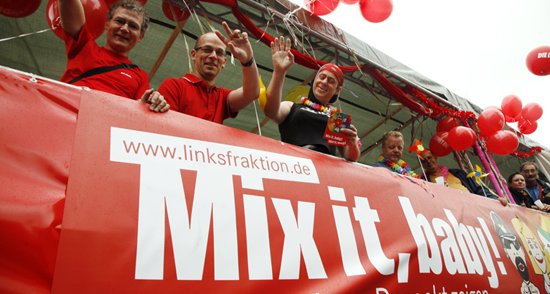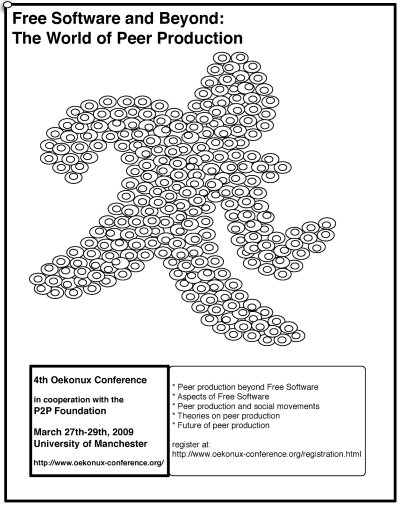 Unter dem Titel Kapitalismus abwracken! das schöne Leben gewinnen veranstalten die Falken, die Rosa-Luxemburg-Stiftung und das Bildungswerk Berlin eine Konferenz für junge Leute von etwa 16 bis 26 Jahren.
Unter dem Titel Kapitalismus abwracken! das schöne Leben gewinnen veranstalten die Falken, die Rosa-Luxemburg-Stiftung und das Bildungswerk Berlin eine Konferenz für junge Leute von etwa 16 bis 26 Jahren.
Jenseits des Kapitalismus: Wie wollen wir leben, arbeiten, vergnügt sein?
Jugendkonferenz zu Kapitalismus und dem ganz Anderen
vom 3. – 5. Juli 2009
in der Bildungsstätte Kurt Löwenstein bei BerlinNicht erst seit der momentanen Krise gibt es eine Kritik am Kapitalismus. Schon seit seiner Entstehung werden Alternativen für eine andere Gesellschaft diskutiert. In der Geschichte gab und gibt es einige Versuche anders zu wirtschaften und neue Formen des kooperativen Zusammenlebens auszuprobieren.
Als vor 20 Jahren die Mauer fiel, sprachen viele vom »Ende der Geschichte«. Damit war gemeint, dass das westliche Modell von Marktwirtschaft und Demokratie gesiegt hat und von nun an die beste aller möglichen Welten sein wird. Wir wollen auf unserer Jugendkonferenz diesen Mythos in Frage stellen und mögliche Alternativen diskutieren.






 Download the
Download the